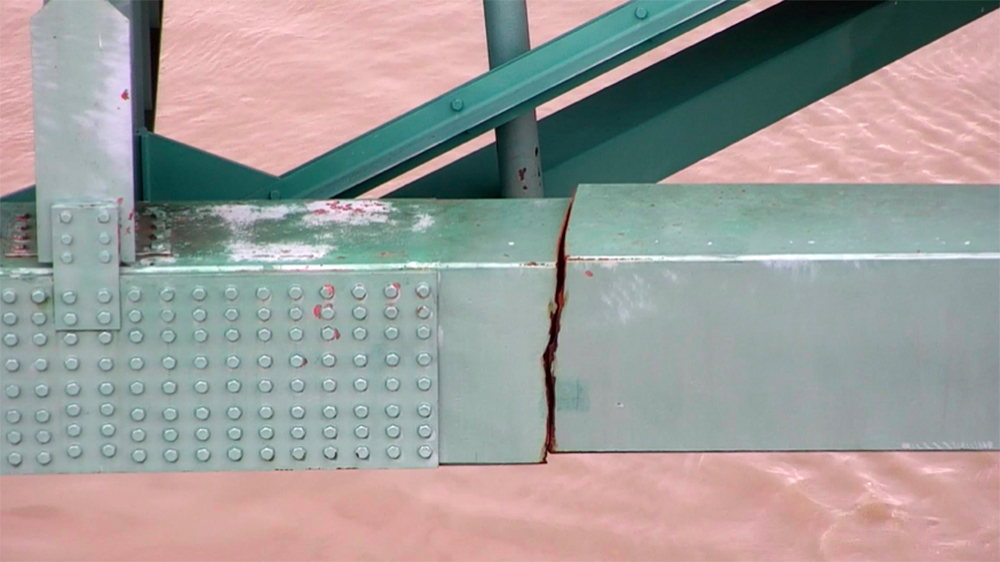Last week, with little time to spare, I scrapped a perfectly serviceable column intended for this space. Inspired by a ransomware attack on the Colonial Pipeline and a “crack” in the Hernando DeSoto Bridge, my debut editor’s column was almost about infrastructure — more specifically, it was almost about expanding our definition of infrastructure. Little did I know that just as I was switching gears to write an entirely different kind of column, Tennessee Governor Bill Lee was using a stop in Memphis to review bridge repairs as an excuse to take jabs at President Joe Biden and Congress for taking the time to ponder “the definition of infrastructure.”
Boy, was I kicking myself when I saw that. Had I stuck with my original column topic, I would have looked like a genius, like I had somehow foreseen Lee’s statement, which was released just after our print deadline. But we had already gone to press, so there was nothing that could be done. Luckily, it looks like we’ll be debating the definition of infrastructure for a while, so this is still topical a week later.
What, exactly, is wrong with pondering the definition of infrastructure? Perhaps Gov. Lee has forgotten that language is fluid; it changes over time to reflect the needs of a changing society. And the country (and Memphis) has changed since the bridge in question was built.
It’s worth noting that construction on the Hernando DeSoto Bridge was completed in 1973. That’s two years after Fred Smith bought Arkansas Aviation Sales and founded FedEx, but years before FedEx would be used as a verb meaning “to ship something quickly” (an example of changing language), or before its headquarters would be moved to Memphis. How many FedEx trucks cross that bridge going to and from Memphis International Airport these days? In other, more recent shipping developments, Amazon is planning two new facilities for the region — one in Byhalia and one in North Memphis. I’m sure they’ll add to the load as well.
I don’t mean to suggest that any of these businesses are the root cause of the bridge crack. Plenty of average citizens cross the bridge every day as well. My point is that the bridge is older than entire industries. We’re so quick to accept new terms when they’re consumer goods, so why are we so loath to update the lexicon when we’re talking about something everyone can use? Amazon and FedEx are household names, but infrastructure must always mean roads and bridges? It’s time to think outside the box, and in case anyone hasn’t been paying attention, we have a pretty clear example of just how wrong things can go when we ignore potential threats.
A pandemic response team isn’t a superfluous expense because we might not need it next year. Bridge and road and utility upkeep are all vital. Cybersecurity, in our interconnected and increasingly digital world, damn sure counts as essential; if a ransomware attack can cripple the East Coast’s oil distribution, shouldn’t cybersecurity be infrastructure?
Cost is an issue, of course, but think of all this as national defense if it helps the pill go down more smoothly. We don’t want to be taken by surprise by climate change, or the next coronavirus, or a more sophisticated and long-reaching cyber attack. As a society, we’re really only as healthy as our least-protected members. There are practical reasons to ensure everyone has access to basic services and protections.
Some people might want to debate my use of the word “basic.” They have trouble imagining the internet and elder or child care as infrastructure. But have you ever tried to apply for a job in the 21st century without an internet connection? If you get the job, what do you do with your kids? We need working social structures as much as we need bridges and roads. We need access to intangible but vital services like the internet. Reimagining our definitions means taking a hard look at an uncertain future, and uncertainty is frightening. What will the world look like once we’ve reimagined it? How will we bring it into existence? And after all that work, will we just have to do it again every generation?
We’ll have to cross that bridge when we come to it. For now, let’s ponder this together.
